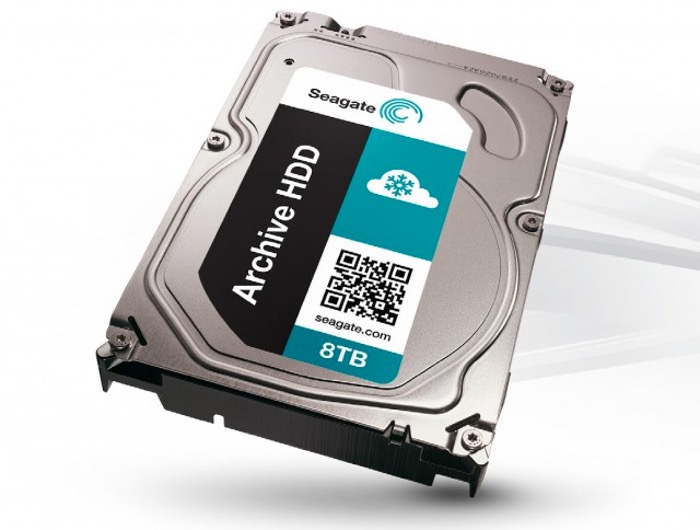With the vast amounts of data we process every day, capturing HQ photos along with ultra HD video content, it gets to the point where storage on our home computers is being consumed at an alarming rate. If you happen to be one of those people who have the need to store large amounts of data, whether it is a massive music collection or perhaps backups of your favourite movies on Blu-ray, you might be interested in the newly announced hard drive from Seagate.
The company is well known for their storage solutions, along with their technical innovations in allowing us to store more and more data. We all know that we are rapidly closing in on the capacity limits of traditional hard drives, but even still that hasn’t stopped the company investing money and development in releasing this affording 3.5” internal SATA drive which is aimed at users who require the need to store very large amounts of data.
The new “Archive” range from Seagate will be available in a total of three different sizes, the 8TB as mentioned along with a 6TB and also 5TB models. As well as offering the standard SATA drives, you are also able to purchase a secure version of each drive which features an encryption chip ensuring that all of your data is securely stored.
In terms of performance, the drives spin at 5,900 RPM and have a transfer speed of around 150MB per second, so not the quickest drives in the world – but Seagate are not too fused about this as for the company it’s very much about reliability with each drive having a rating of around 800,000 hours along with a 3 year warranty.
When released the 8TB drive will cost $260, and when compared to some of the current 6TB models on the market, the cheapest ones are around $280.
Seagate are aiming for a January 2015 release date, with Amazon having the drives in stock as early as the 7th.
Make sure you check out the video below which details the company’s new Shingled Magnetic Recording, or SMR technique which adds more than 25% capacity growth by maximizing the number of tracks per inch on a single disk.
